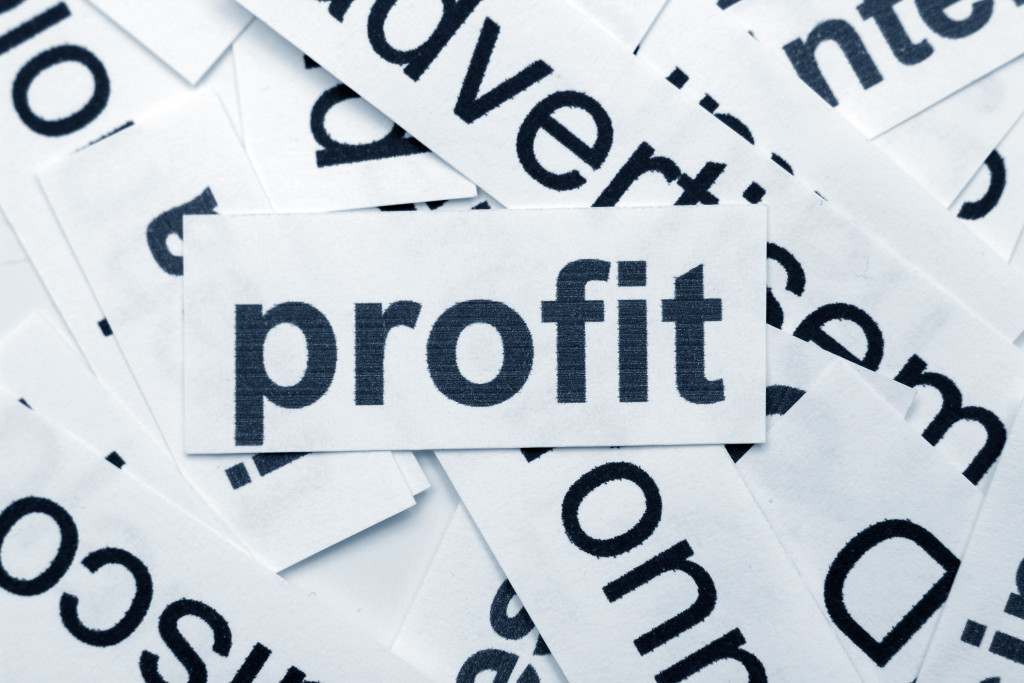Stop Wasting Time
Jun 22, 2016
While our blog focuses on cost accounting, today’s topic may not be specifically related, but I do believe it has significance. Years ago, my clients had me focused on tax-related matters which resulted in a heavy workload January through April with a stress-free summer. However, now as a consultant for WVC’s affiliate, WVC RubixCloud, I no longer have break. I find myself extremely busy with a constant flow of action items. Sometimes I even struggle to find time to get everything accomplished.
Do you share in these same issues? Do you have good intentions and intend to get things done, however, by the end of the day you have barely accomplished anything off of your to do list and more often than not, added to it? I have to guess that you are like me and have very similar issues. What do you do about it?
 Why do we have such great intentions and are unable to act on them? Often times, we tend to check items off our list which are the easiest or the fastest to complete. These are certainly the ones we know how to do. It is very easy to ignore the difficult task or the ones which involve extra planning or research. These tasks get placed on back burner which generally means they never get resolved due to time constraints.
Why do we have such great intentions and are unable to act on them? Often times, we tend to check items off our list which are the easiest or the fastest to complete. These are certainly the ones we know how to do. It is very easy to ignore the difficult task or the ones which involve extra planning or research. These tasks get placed on back burner which generally means they never get resolved due to time constraints.
I suspect many of you are nodding along with me in agreement. Most importantly, what are we going to do about it? How do we stop putting these important tasks on the back burner? Have you ever thought maybe if you take the time to really get your software system running or figure out your variances, you may actually save you time? That your information may be more accurate more reliable more timely and more simple? Stop a minute and think about what it would look like to just click a button or two to generate a report instead of exporting and manipulating data in Excel. Think if you could quickly know the answer as to why data is different than expected when asked by your superior. Next time you’re tempted to put a task on the back burner, instead say to yourself let me put this Excel spreadsheet on the back burner and get my tasks in line and make my job more efficient,
Categories: Cost Accounting
Role of A Cost Accountant
Jun 13, 2016
I recently spoke with a client concerning their cost accounting department. This particular organization was a manufacturer of automotive related products with a sophisticated cost system. The company had a number of full-time employees specifically devoted to maintaining and developing the costing system. Our conversation, however, involved the various expectations and standards this CFO should anticipate from the cost department.
Of course, there is a different answer for virtually every business which maintains a costing specialty area. However, from my perspective, what cost accountants do can generally be broken down into three general areas.
 First is to maintain cost information on the products the company is producing. This maintenance includes a constant review of existing standards, noting changes in processes or products which result in a change of cost. The goal of the cost accounting team is to maintain up-to-date and accurate product costs. Such information should be based on actual data being produced on the floor or to original standards and rates that were used to develop the cost at the beginning of the period. This is an ongoing assignment which requires frequent attention and constant focus on what is occurring on the shop floor. In addition, the job requires the ability to anticipate needs from the management team related to product costing.
First is to maintain cost information on the products the company is producing. This maintenance includes a constant review of existing standards, noting changes in processes or products which result in a change of cost. The goal of the cost accounting team is to maintain up-to-date and accurate product costs. Such information should be based on actual data being produced on the floor or to original standards and rates that were used to develop the cost at the beginning of the period. This is an ongoing assignment which requires frequent attention and constant focus on what is occurring on the shop floor. In addition, the job requires the ability to anticipate needs from the management team related to product costing.
Second, cost accountants provide management controls of operations. Many costing systems are still based on the standard cost method which includes variance reporting by department, by product, by a person, or by a process. Such reporting can be utilized to compare standard cost data in relationship to actual results. In some cases, reporting of such management information is completed very regularly, maybe hourly or maybe daily, and issued in reports to the various management team members. However, other components may be reported on less frequently. For instance, overhead variance calculations should probably be done no more frequently than once a month. These variance calculations are generally done for the purpose of improving management control and usually result in very specialized periodic reporting to a variety of individuals. based solely on their ability to impact or improve the costing results based on the data that they have been provided to them from the cost accounts.
The third general category of assignments cost accountants frequently work on are related to specialized projects. I have worked with accounting teams which were charged with determining the profitability of certain parts, or a specific manufacturing location. Others have included assignments related to make vs. buy or outsourcing of a product to a foreign country. In this particular instance, special assignments included those related to products previously produced by the company and analyzing costs to determine if it would be more cost-effective to have these parts produced elsewhere. There are also special projects which help to determine how efficient a specific apartment may be or how efficient a given process is over the another. Other cost accounting specialized projects include assistance with determining a capital expenditure and the criteria to be included on simple payback or rates of return to assist management in making a capital improvement decision.
As I think about the wide array of assignments in which cost accountants are associated, I believe this general list of categories included the most common. However, as I said earlier, every firm is different and can include a wide diversity of other assignments that are unique to their industry or their location.
Categories: Cost Accounting
Gross Margins & Benchmarks
Jun 07, 2016
I recently met with a client looking to purchase a manufacturing facility. He spoke about the gross margin of the facility and I was surprised by his comments.
First, he mentioned how shocked he was by the poor the margin which was 25%. I do not know about you, but for a manufacturer, this margin seemed decent. I know of manufacturers who operate with single-digit margins, and many who strive for 20%. Different industries have varying degrees of margins and the number can also be dependent on a company’s location within the world. It is not usually fair to cross compare margins. In this instance, the client did not know much about the given industry to have appropriate benchmarks. It is vital in any business to have benchmarks and set goals for your profit margin based on such data, If you are not realistic the goals are unattainable and will not be worthwhile.
 Second, the client said he was very surprised to see factory employees insurance and other related expenses in COGS. In his mind, these were clearly part of G&A. Based on my experience, these are clearly COGS. I’m not sure why he believes otherwise.
Second, the client said he was very surprised to see factory employees insurance and other related expenses in COGS. In his mind, these were clearly part of G&A. Based on my experience, these are clearly COGS. I’m not sure why he believes otherwise.
As you can imagine, I am concerned about this client purchasing and attempting to manage such a facility. Hopefully, through coaching and expanding upon various costing principles, we will be able to achieve success. Do you or various leaders in your organization make such comments?
Managing your gross margin is essential. It’s an important part of any business, but particularly manufacturing. Do you know your organization’s financial benchmarks? Do you have a good handle on your true gross margin calculation?
Categories: Cost Accounting
Taking A Step In The Right Costing Direction
May 25, 2016
I few weeks ago, I spoke at a breakout session at the G400 accounting seminar in Denver. The G400 is the American Institute of CPAs’ annual conference offering a unique opportunity to network with peer firms and gain greater insight into the opportunities, concerns, and challenges of running a certified public accounting practice. I was honored to engage with a group of partners to discuss possibilities for growing a firm through specializations and niches. I focused much of my presentation on my personal experience working at William Vaughan Company where we offer a diverse array of services, specifically costing.
 For me, it was very interesting to hear what other accounting have been doing. I was very surprised to discover how some firms are reluctant to explore services in which they are not experienced. Obviously, it would not be recommended to offer a service without any sort of formal training or experience. However, growing firms understand the importance of analyzing the market to determine a void. Firm specialization is extremely valuable when it comes to serving large clients with a variety of needs beyond traditional tax. Being fearful of an unknown may result in a loss.
For me, it was very interesting to hear what other accounting have been doing. I was very surprised to discover how some firms are reluctant to explore services in which they are not experienced. Obviously, it would not be recommended to offer a service without any sort of formal training or experience. However, growing firms understand the importance of analyzing the market to determine a void. Firm specialization is extremely valuable when it comes to serving large clients with a variety of needs beyond traditional tax. Being fearful of an unknown may result in a loss.
Cost accounting is a very specialized service involving a unique set of skills. Many firms are not comfortable offering this service. However, I would argue the benefits of knowing your costs and serving your clients in a way that provides clarity far outweighs the work involved in establishing a new niche.
Educate your office, take a CPE course or hire a consultant. As a CPA firm, it is essential to remain competitive and know you can service your client no matter what their need may be. As a client, quality costing information can provide clarity and direction for the future. Whatever side you may be on, don’t let fear hold you back – take a step in the right direction!
Categories: Cost Accounting
Industry Focus: Costing Accounting In the Food Processing Indsutry
May 16, 2016
 During our most recent costing CPE, I became familiar with the various businesses of each our participants. As I have been teaching these courses for a number of years, I have discovered there are certain common characteristics between businesses and their cost accounting information. Even with an extremely diversified group of attendees, these reoccurring themes seem to be present at most of our presentations.
During our most recent costing CPE, I became familiar with the various businesses of each our participants. As I have been teaching these courses for a number of years, I have discovered there are certain common characteristics between businesses and their cost accounting information. Even with an extremely diversified group of attendees, these reoccurring themes seem to be present at most of our presentations.
One particular fact which has impressed me is how the food processing industry is focused on maintaining and applying costing information. I suspect much of the effort being placed on such data is the result of the highly competitive nature of the industry and the need for accurate data related to pricing. In an industry where raw material prices can change dramatically depending on the season, the pressure to remain profitable is considerable. With stiff competition and an extremely short shelf life, a focus on product cost is an appropriate priority.
I have experienced situations where the shelf-life is only days or hours and raw material costs can change 30% or 40% over the year due to food product seasonality. Thus, it is essential to compare selling prices to those of competitors in order to remain competitive in the market. As a result, many food processors depend on extremely accurate and responsive costing systems. Such strategic data allows managers to recognize and react to price changes. Also, operations can constantly be monitored to improve efficiency and positively impact profitability. If such information is not available through a cost system, the financial results will be undesirable as the management team will have antiquate data not practical nor functional for the success of the business.
I suggest any food processor, particularly those preparing fresh food products, consider how you are reporting your costing information. If necessary, upgrade your system to become timely and comprehensive with regard to your cost information. Your management team is only as good as the data you provide them!
Categories: Cost Accounting
